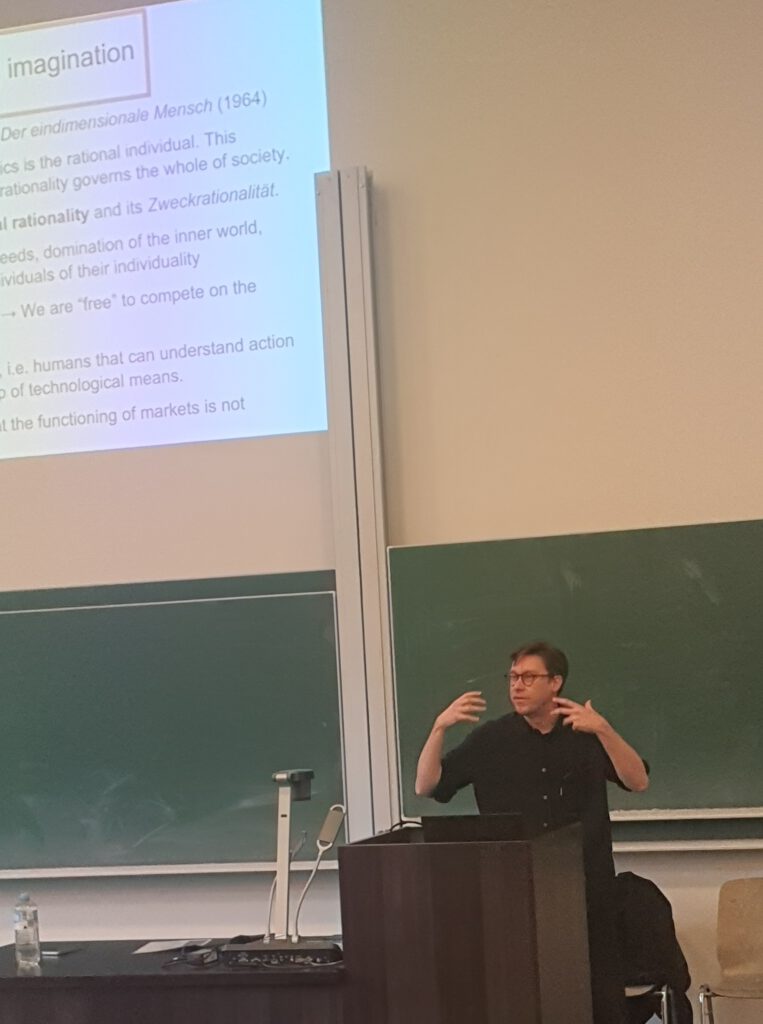International Populism Research Network
ABOUT THE NETWORK
The network’s activities are centered on new theoretical, qualitative and quantitative approaches to studying the phenomenon of populism worldwide.
It is open to other social science and humanities disciplines beyond the field of political science, such as sociology, philosophy, cultural, media and literature studies, ethnology, visual studies, performance studies, law and history.
The International Populism Research Network organizes academic events (both in-person and online) at CAU Kiel and in collaboration with partner institutes. These include academic conferences, workshops and panels at national and international conferences, international teaching collaborations and events for the general public.
The International Populism Research Network conducts its own research projects and supports doctoral and post doc projects.
It disseminates its research findings in the form of scientific publications and publicizes the core work of its partner organizations.
To give its activities additional visibility, the International Populism Research Network also communicates with the broader public.
International Workshop
Symbolizing the People and Popular Sovereignty
Location: Hamburg Institute for Social Research, Mittelweg 36, 20148 Hamburg
- Paula Diehl (Kiel University)
- Luciana Villas Bôas (Federal University of Rio de Janeiro)
- Hamburg Institute for Social Research
- International Populism Research Network
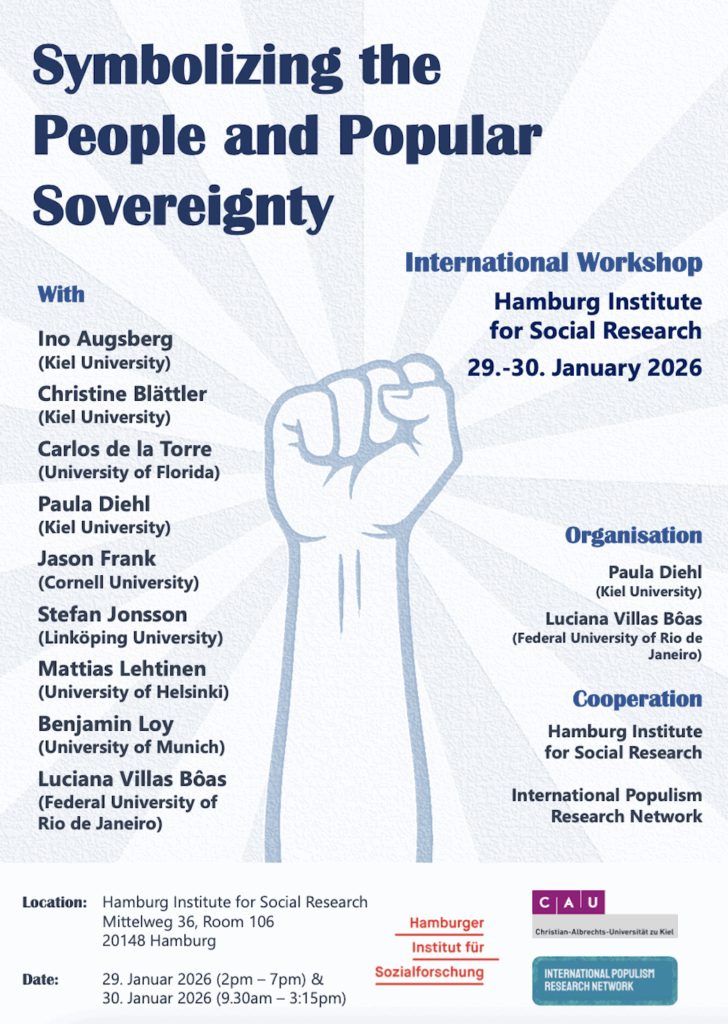
Registration: No registration is required. However, the number if available seats for external participants is limited in the event location.
ZPol Special Issues 2027
Trumps most dangerous ideologue
Wenn Donald Trump den Staat anfeindet, die Justiz angreift oder gegen Migranten hetzt, dann stehen hinter seinen schärfsten Worten oft die Gedanken eines Mannes: Stephen Miller. Der stellvertretende Stabschef im Weißen Haus und Berater für innere Sicherheit hat Trump mit radikalen Ideen schon zur ersten Präsidentschaft verholfen. In der zweiten Trump-Ära setzt Miller zum Frontalangriff auf die US-Demokratie an. Wie einflussreich und gefährlich Trumps Scharfmacher ist und wie er Amerika für immer verändern will, erklärt Reinhard Heinisch. Er ist Politikwissenschafter an der Universität Salzburg.
Europe's politics under the spell of conspiracies
Im Gespräch mit scilog, dem Wissenschaftsmagazin des Österreichischen Wissenschaftsfonds FWF, stellt Reinhard Heinisch (Universität Salzburg) das Projekt „Populism and Conspiracy in the COVID-19 Pandemic and beyond“ vor. Das Projekt wird von Reinhard Heinisch und Oscar Mazzoleni (Universität Lausanne) geleitet. Es wird vom FWF sowie vom Schweizerischen Nationalfondn (SNF) gefördert.
The International Populism Research Network at the APSA 2025
Panel 1: Populism, “The People,” and Democracy: Insights from the Latin American Experience
Chair: Kenneth Roberts
Presentations:
- Carlos de la Torre (University of Florida): Reimaging Populism and the People: Lessons from Latin America
- Paula Diehl (University of Kiel): Populism and the Tipping Point of Democracy
- Lisa Zanotti (Diego Portales University): The Authoritarian Feedback Loop: Rethinking the Populist Radical Right Beyond Nativism
- Kenneth M. Roberts (Cornell University): The People as a Political Subject in Comparative Historical Perspective
Comments:
- Jason Frank (Cornell University)
- Kurt Weyland (University of Texas at Austin)
Panel 2: Populism, Demagoguery, and Rhetoric in Historical Perspective
Chair: Rob Goodman
Speakers:
- Paula Diehl (University of Kiel)
- Rob Goodman (Toronto Metropolitan University)
- Tae-Yeoun Keum (University of California, Santa Barbara)
- Simon Lambek (University of the Fraser Valley, British Columbia)
- Cary Nederman (Texas A&M University)
- David Ragazzoni (University of Toronto)
Learn more about the edited volume.
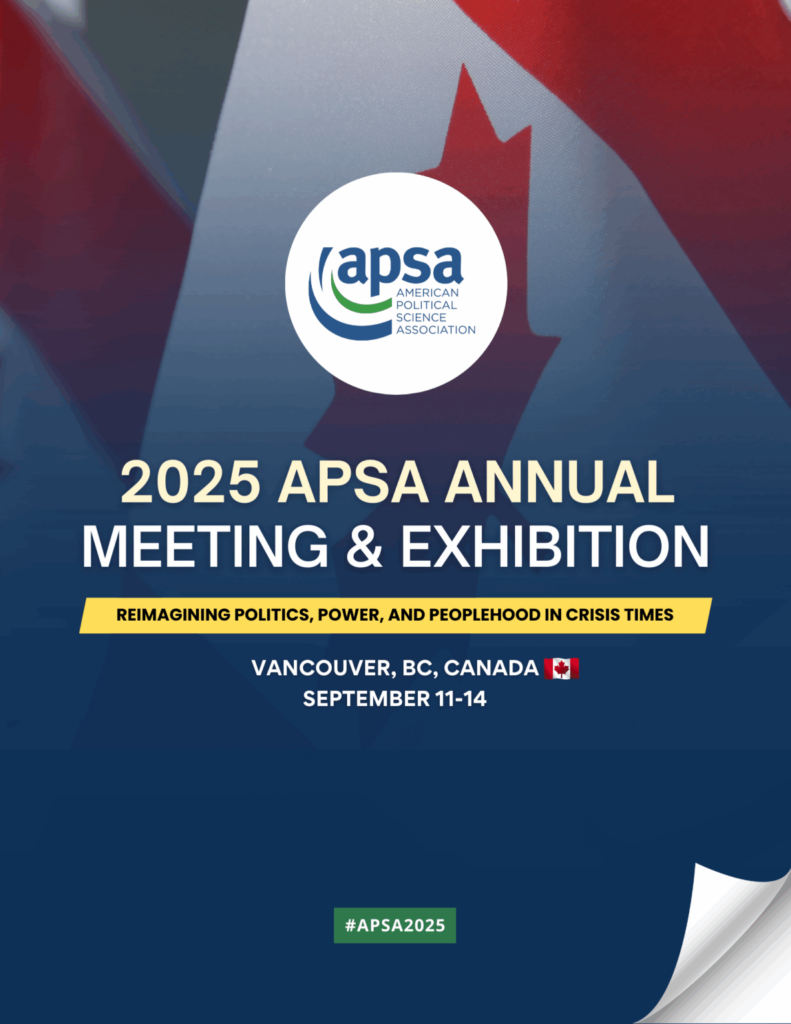
Learn more about the APSA Annual Meeting’s programme.
„The Crisis of Political Imagination“
What happens when societies lose the capacity to imagine political alternatives, when societies block alternatives or when the only alternatives that are produced are antidemocratic? In his lecture on the crisis of political imagination, Mattias Lehtinen explored these different aspects of the contemporary crisis of political imagination in a situation where our collective political creativity is increasingly constrained by neoliberal rationality and the normalization of illiberal and far-right politics. Through linking three interconnected diagnoses, the erosion of invention, the failure of institutionalization, and the normative misdirection of imagination, he traced how imagination has shifted from a collective, democratic force to a privatized one that can be seen as linked to the reconstitution of heteronomous political projects.
Federalism – an Obstacle to or a Chance for Populism?
Interview with Paula Diehl in Schweizer Radio und Fernsehen (SRF)
The German AfD seeks support from Trumps MAGA movement
In the channel Radio SRF 4 News, Paula Diehl discussed the AfD’s connections to the Trump administration, the Republican Party and the MAGA movement. The interview was conducted by Nicolas Malzacher.
New documentary by the UNPOP project
Populism: Performing Democracy: Collective Emotions, Political Narratives and Social Identities
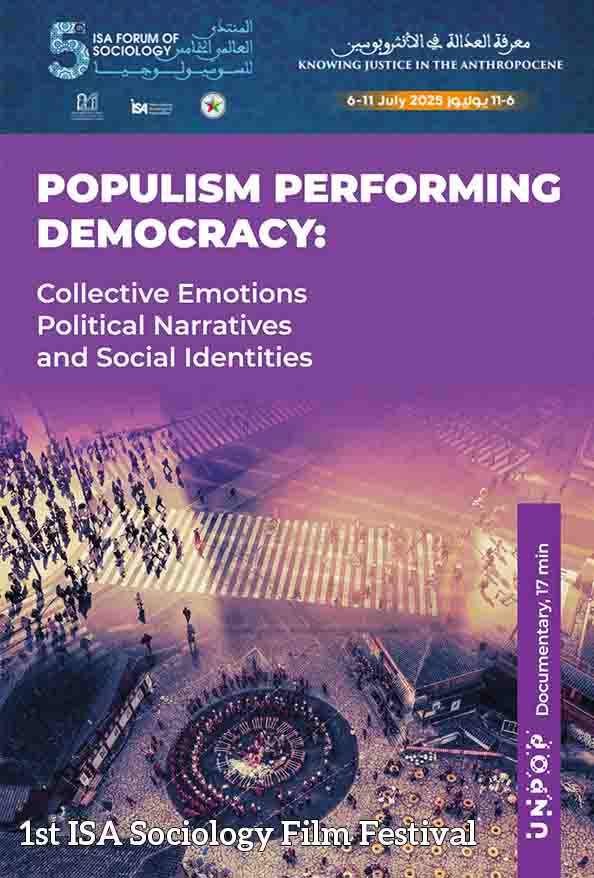
Ruth Wodak in conversation with the Catholic Social Academy of Austria (in German)
How can one decipher right-wing populism, Ruth Wodak?
New Book by Théo Aiolfi
The Populist Style: Trump, Le Pen and Performances of the Far Right
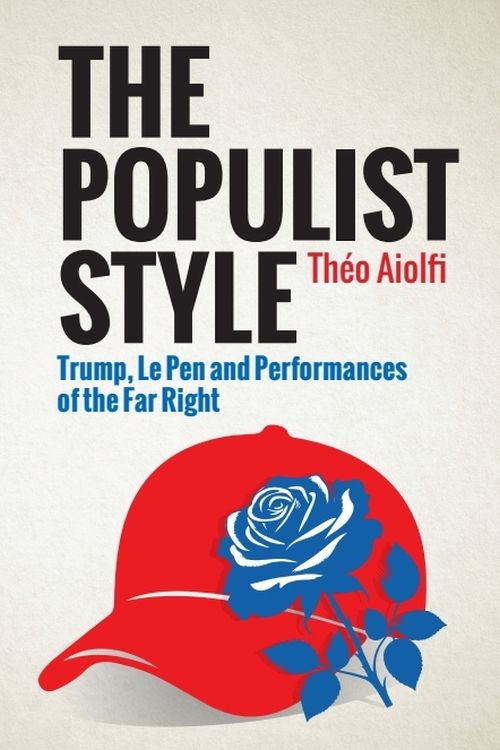
Legal Notice:
Institute of Social Sciences/Political Science
Olshausenstr. 40
24118 Kiel
Represented by: Prof. Dr. Paula Diehl (Director)
Olshausenstr. 40
24118 Kiel
phone: +49 431 880-5217
mail: contact.populism@politik.uni-kiel.de
Liability for links: Our offer contains links to external websites of third parties, on whose content we have no influence. Therefore, we cannot accept any liability for any external content. The respective provider or operator of the site is always responsible for the content of the linked sites. The linked pages were checked for possible legal violations at the time of linking. Illegal content was not identified at the time of linking.However, a permanent control of the content of the linked pages is not reasonable without concrete evidence of a violation of the law. If we become aware of any infringements, we will remove such links immediately.
Copyright: The content and works on these pages created by the site operators are subject to German copyright law. The reproduction, editing, distribution and any kind of use outside the limits of copyright law require the written consent of the respective author or creator. Downloads and copies of these pages are only permitted for private, non-commercial use.
Insofar as the content on this site was not created by the operator, the copyrights of third parties are observed. In particular, third-party content is identified as such. Should you nevertheless become aware of a copyright infringement, please inform us accordingly. If we become aware of any infringements, we will remove such content immediately.
Webdesign by: Lilit K
Contact via mail
